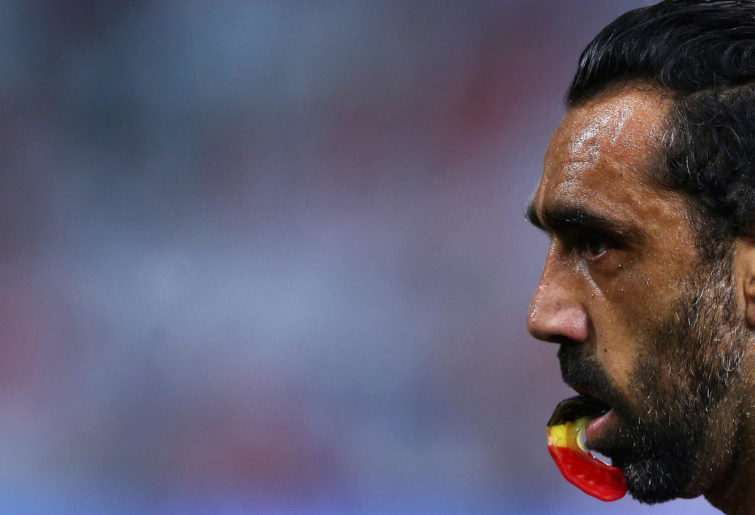JackJumpers' NBL title was special - but where does it sit among Tasmania’s top ten sporting moments?
It’s a pretty good time to be a Tasmanian sports fan right now. After years in the sporting wilderness with not much to celebrate,…
Opinion
Sitting in the grandstand hearing the boos, hearing the howls, what would you do?
This is not a question directed at any individual. It is a question directed to the people of Australia.
Like the majority of young Australians, I go to school every day to learn and do my job as a student. Likewise, my parents go to work and do their job every day.
So why do some sports men and women, when they go and do their job, get booed and abused?
Let me pose this question: how would you feel if you turned up to work tomorrow and were verbally abused and dismissed for what you are wearing or how slow you write or just doing your job?
Last time I checked that’s called workplace bullying.
“Workplace bullying is verbal, physical, social or psychological abuse by your employer (or manager), another person or group of people at work,” per the Australian Human Rights Commission.
Only a couple of months ago a cricket game between India and Australia was interrupted and halted because of racial abuse. Mohammed Siraj, a 26-year-old Indian bowler on his debut tour, was abused on the boundary. Australian sporting pundits were baffled by this most recent instance of vilification. Lisa Sthalekar, a former Australian cricket player who has Indian roots herself, was particularly exasperated, asking the Australian public, “Why is this abuse still happening?”.
You would have thought by now, in 2021, Australia as a nation would have learnt from previous mistakes. Surely after the demolition of Adam Goodes’s AFL career, fans of sport would have started to understand. I guess not.
I watch and follow sport. Careers have been destroyed and competitions have been halted due to racism. I’ve often wondered why people feel the need to turn to racism in sport. Is it because the individual is playing really well, or does it come down to something deeper? Furthermore, do people feel powerful and tough when they racially abuse someone or is it because they are intimidated and feel weak and therefore have to racially vilify people who are different to protect themself?
Australia prides itself on being a multicultural country. This seems to be a contradiction when racism in sport and casual racism still exists. All individuals should be recognised for their abilities on and off the field.
Adam Goodes was abused in May 2013, but it wasn’t by a 30-year-old drunk person. He was called an “ape” by a 13-year-old girl supporting Collingwood. The effect this one comment had on the whole of Australia and the effect it had on me made me wonder why a 13-year-old supporter would have done this in the first place. Was it because of her upbringing? Was it normal among her family to say something like that?
But there’s more to it than that. At such a young age she hasn’t been fully educated and most likely didn’t understand the seriousness of what she was saying. And I am almost certain she wasn’t expecting to be pointed out and removed from the game only five minutes later.

Adam Goodes (Photo by Ryan Pierse/Getty Images)
At the time I was only nine years old. Like her, I didn’t know much about racism and about the effects it has or can have on people. However, from that day and after the follow-up press conferences this affected me and still affects me. It was the start of my understanding of racism and what the long-term effects can be.
Like Mohammed Siraj and like all athletes, to be abused for doing your job doesn’t add up. Think back to Adam Goodes – he was simply doing what he was paid for. He was just working like everyone else. When he heard the abuse and reacted he didn’t direct it at this individual. He instead implored Australians to start the conversation about casual racism.
Local sporting clubs and in particular AFL clubs have implemented changes and rules surrounding verbal abuse on the field. This is directly linked to racism and in some cases sexism. But this doesn’t solve all the problems. The rule isn’t nationwide. The fact people are still told what they can and can’t say shows Australia’s minimal progress towards racism. This indicates that people do not have soft skills like empathy to reflect on their actions.
In fact when we look more closely we see that the TV channels and heads of sport have not stamped out racism or stopped it, certainly not early enough. Sam Newman remained on air for years despite his racist actions and attitudes, allowing the public to think it was okay to be racist in a sporting environment or just casually racist.
When we look back on sport throughout history, it has always been there, and all around the world. I think to basketball, cricket, football, AFL and rugby. These sports are internationally recognised but have endured multiple issues of racism.
While looking up racism in football I stumbled across an article in Business Insider referencing 15 racist incidents in 2019 alone. That is more than one per month. Just looking at the title of this article disgusts me.
Looking into 2020, the numbers of racist events were down significantly due to the lower and in some cases absent crowds. This could be the wake-up call we all needed. This could be the start of a new era.
If you’ve ever taken a thrill from abusing someone else in the workplace, on the sporting field or at home, if you’ve ever felt a spark of self-satisfaction from abusing someone, it’s time to change. We all have the opportunity to do better.